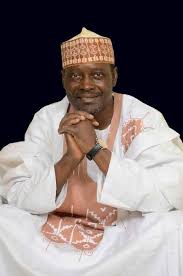A member of the Revenue Mobilisation Allocation and Fiscal Commission (RMAFC), Alhaji Shuaibu Yamam Abdullahi, has stated that the 2021 federal government budget would face immense fiscal challenges, given the current global economic challenges and the country’s sole dependence on oil as its major source of revenue.
Abdullahi, who was fielding questions from journalists in Ilorin, the Kwara state capital, urged the federal government to commence a thorough diversification programme in earnest that would be pursued with more vigour and aggression, if the budget proposal would not be a mirage. He also admonished the government to expand its tax net to cover millions of other people who have not been captured and have not been paying their taxes as expected of patriotic citizens.
He said: “Oil is an exhaustive commodity. The whole world is taking steps back from fossil fuel. China, for example, which is one of the highest buyers of fuel, is saying by 2024, they do not want to have petrol-fueled cars any more. They are thinking of electric cars. That is what is in vogue now, no serious country thinks of oil on the long term again.
“Currently, oil has fallen to as low as $40. So who will buy our oil now? We are not producing to our full capacity because people are not buying. The ones we are producing, we are not getting more than 40 percent of its value. So the revenue of government is very small and declining. I remember how life used to be in those days. In primary school we paid nothing, in secondary school we also paid nothing. Even in my University days, I was paid to go to school. Even when I go home, I give my parents money. This happened at a time when oil wasn’t there.
“How were we able to achieve that? It was through tax. When you are 20 years, you pay tax. People paid their taxes diligently. It was through that money that local authorities sponsored the school system. We had exercise books free, we had text books free and we got sponsorships too. Now with 200 million people, how many people pay tax in Nigeria now? Very few.
“With or without Covid-19 pandemic, there are certain structural issues affecting the Nigerian economy. The Minister of Finance said that the problem of the country is just one: To take care of the people. Nigeria has a population of 200 million people, at least that is what many agree on. We depend on one product, oil, as sustainer of our economy. So if there is anything that affects oil as it is currently, it affects the economy.
“There are also talks that the effects of Covid-19 pandemic will play its role in the budget realisation. But even before the pandemic, oil prices have started plummeting. At a point in time, we were selling our oil at $100 per barrel. Effects of Covid-19 further forced it down to about $50 and even below. What this tells us is that the revenue stream of government was halved. The effect of that is that the money that would have been available for the economy to be strong has not been there.
“Government revenue is so small now. In Africa, Nigeria is the lowest in terms of tax to GDP ratio. Nigeria has only six percent, while countries like Ghana, South Africa, even Rwanda that has just risen from genocide, have about 20 percent. This is the revenue contribution of individuals in relation to the GDP. But because a lot of us are outside the tax net, and do not pay tax, the country suffers.
“I have a tailor who makes clothes for me. I sometimes pay him N20,000 to make five clothes for me. He makes between N100,000 and N400,000 in a month, but he pays no tax, while the poor man who makes N30,000 in a month, works with government, his taxes are deducted at source. Now the ones who earn more and pay nothing are more vociferous in asking for amenities. How will the money come?
“Now with Covid-19, most industrialised countries have stopped working. There was lockdown. So the demand for our oil went to an abysmal low. With that, the little revenue that was coming almost stopped. At a point, we had so many of our ships floating on the high seas with nobody to buy our oil.”

Leave a Reply